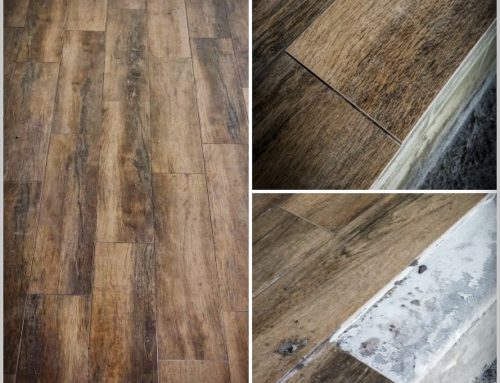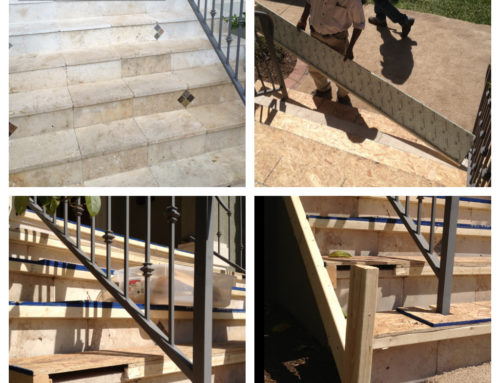|
 In our last blog – How To Choose A Chinese Drywall Contractor – And Not Get Scammed (Tampa, Florida) – we talked about the simple steps you can take to choose a quality Chinese drywall contractor. In this blog, we’re going to talk about what kind of red flags to look for as you search the internet for answers to your Chinese drywall problems. With so many online sources of information about defective drywall, sometimes it’s difficult to determine whether the site you are looking at is a potential friend, a potential foe, or maybe just not quite what they make themselves out to be. In your online search for solutions to your Chinese drywall problems be on alert for websites that may not be as authentic as they make themselves seem. Here are some things to look for: In our last blog – How To Choose A Chinese Drywall Contractor – And Not Get Scammed (Tampa, Florida) – we talked about the simple steps you can take to choose a quality Chinese drywall contractor. In this blog, we’re going to talk about what kind of red flags to look for as you search the internet for answers to your Chinese drywall problems. With so many online sources of information about defective drywall, sometimes it’s difficult to determine whether the site you are looking at is a potential friend, a potential foe, or maybe just not quite what they make themselves out to be. In your online search for solutions to your Chinese drywall problems be on alert for websites that may not be as authentic as they make themselves seem. Here are some things to look for:
- “We’re approved!” – Be cautious of websites which claim they have a spray-on, or encapsulating-type, product which is “Approved”, “Tested”, “Proven”, “Authorized”, and the like. To the best of our knowledge, at this time there are no spray-on applications of any kind which have been scientifically proven to eliminate the Chinese drywall problem. Neither the the Consumer Product Safety Commission, or any other accredited independent testing laboratory, has approved of any such application to remove the problems associated with Chinese drywall. Therefore, any company that also offers a “warranty” with their application should be met with healthy skepticism (and a detailed review by your attorney). A piece of paper that says “CHINESE DRYWALL WARRANTY” is great, but if the fine print contains “weasel clauses” then it won’t be worth the paper it’s printed on. At this time, the only “Approved” method (CPSC and Judge Fallon) to eliminate a Chinese drywall problem is to remove the problem drywall.
- “Who is running this thing?” – Be cautious of websites that make it difficult to determine who is “behind the curtain”. Reputable companies will have names, addresses, phone numbers, license numbers, and other credentials listed on their websites. Their website pages will make it clear who they are, where they work, and will provide evidence (not just words and fancy pictures) why they are qualified to do the work. If the only information you can find about the company is located on the “Contact Us” page, then it should raise a red flag.
- “We’re experts, now drop your guard!” – Be cautious of self-professed experts with website names that appear to make them Chinese drywall experts. There are some very active “information based” Chinese drywall sites, which are set up to look like independent authority sites, but appear to simply be a cleaver way to market their Chinese drywall application sprays, testing, inspections, and so forth. Authentic companies are straight-forward in their marketing and their message to their potential clients.
- “We’re from everywhere!” – Be cautious of Chinese drywall websites that offer services, but do not seem to focus on any particular geographic area. Building contractors, remediation companies, and remodelers can only effectively service small demographic areas. As an example, we – Charter Bay Home Builders – can only effectively service the Tampa Bay (Florida) area. In our case, a small demographic area means we can effectively service Hillsborough, Pinellas, Pasco, Hernando, and northern parts of Sarasota and Manatee counties. If someone calls from Cape Coral, or to the extreme, New Orleans, we let them know that we are unable to help with their remediation. A website that appears to service the entire state of Florida, or anywhere in the country, should raise some red flags. In order for a company to help you with your project, they must at the very least have an established branch office in your area. A Tampa contractor can easily service a client who lives in St. Petersburg, but a contractor based in Jacksonville cannot effectively service a Chinese drywall home that is located in Tampa.
- “Everyone is talking about us!” – Be cautious of “authenticity by association”. Do not necessarily interpret story repetition to be “authenticity”. Just because a story has been re-blogged, and re-tweeted, by others does not automatically make it authentic. Authenticity is “the quality or condition of being authentic, trustworthy, or genuine.”. When we see others reposting stories, blogs, and twitters we tend to think of that as an endorsement, and that tends to add credibility to the original source. And the more times we see the same blog, story, or PR release posted by others, the more authenticity it seems to add to the original poster. If the original post is from an authentic source, then this can be highly beneficial for everyone involved. However, some bloggers and tweeters will simply repost things that have the words “Chinese drywall” in it. If the story appears to have value they will blog it. In many cases, they themselves are not experts, and don’t spend any time determining if the organization behind the story is authentic or not. And in some cases, their systems are set up so that they never even read the original post before it is automatically reposted. As we said, in many cases this rebroadcasting of information can have real value, but if the original source is inauthentic, no amount of reposting will change that.
- Who is quoting who? – Be cautious of websites and posts that continually quote themselves in order to give the appearance of authority on the subject matter. For example, instead of saying “We believe”, or “We recommend”, some sites make it appear that their statements are being quoted by someone else, almost as if the story came about because they were being interviewed by a reporter (adds credibility). As an example, they will write stories that begin like this: “Charter Bay Home Builders stated…” They may simply do this in order to get their name listed more often in the post (which can add value), and in some cases this type of writing style can further a story and make it more readable; however, since they are writing their own story, and not being interviewed by a third party, when it is done over and over it starts to look a little suspect.
- Press Releases Are Good, But Not Special – Online press releases can be valuable because they can help readers find useful information; however, do not interpret press releases as having more legitimacy than any other blog, tweet, or the like. These days, with numerous PR websites to choose from, anyone can release a “press release” about just about anything. The point is this – the press release may have true value, and be from an authentic source, but just because it is a press release does not mean you should automatically assume it is.
- Got Any Real Photos? – Be at least a little leery of a Chinese drywall website that only has “stock” photography on their website and blogs. Stock photos are professional photos purchased from an online photography site. Having only stock photos on a site certainly does not automatically mean that a site is suspect (shooting your own professional looking photos can be quite challenging), but should simply raise a question in your mind. If this company is such an expert in the field of Chinese drywall, why is it that they don’t have any photographs of work they have done?
The internet can be a wonderful tool, but it can also be a tool for deception. Following these guidelines when trying to find answers to your Chinese drywall problems will help you to avoid getting bad advice, or working with people who don’t have your best interests at heart.
For additional information on Chinese drywall, please visit the following Chinese drywall resources:
 Tampa Chinese Drywall Video Series – The video series walks step-by-step through an entire Chinese drywall remediation project. It also covers other issues homeowners should consider before beginning a remediation project. Tampa Chinese Drywall Video Series – The video series walks step-by-step through an entire Chinese drywall remediation project. It also covers other issues homeowners should consider before beginning a remediation project.
 Tampa Chinese Drywall Blog – The blog focusses on those issues directly relevant to any homeowner with Chinese drywall. Tampa Chinese Drywall Blog – The blog focusses on those issues directly relevant to any homeowner with Chinese drywall.
 Tampa Chinese Drywall Twitter Feed – This twitter feed also focuses on those issue directly relevant to homeowners with Chinese drywall. The blog contains more in-depth information while the twitter feed contains the more timely issues relating to Chinese drywall. Tampa Chinese Drywall Twitter Feed – This twitter feed also focuses on those issue directly relevant to homeowners with Chinese drywall. The blog contains more in-depth information while the twitter feed contains the more timely issues relating to Chinese drywall.
|
 Charter Bay Home Builders is a full-service Tampa Chinese Drywall Remediator, Remodeler, and Custom Home Builder working throughout the greater Tampa Bay area including Hillsborough, Pinellas, Pasco, Hernando, Manatee, and Sarasota. Charter Bay can help with your Chinese Drywall Problems and Remediation, Additions, Kitchen Remodeling, Bath Remodeling, Renovation, Remodeling, Home Design, Cabinets, Design Build, and Custom Home Building needs.
Charter Bay Home Builders is a full-service Tampa Chinese Drywall Remediator, Remodeler, and Custom Home Builder working throughout the greater Tampa Bay area including Hillsborough, Pinellas, Pasco, Hernando, Manatee, and Sarasota. Charter Bay can help with your Chinese Drywall Problems and Remediation, Additions, Kitchen Remodeling, Bath Remodeling, Renovation, Remodeling, Home Design, Cabinets, Design Build, and Custom Home Building needs.





